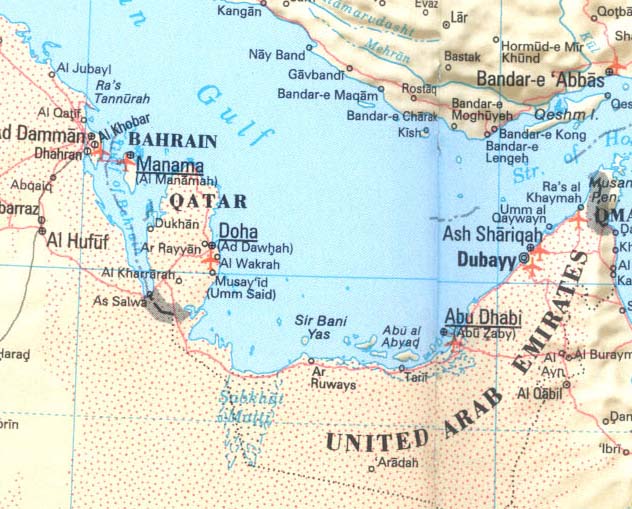A tainted legacy
... But however hard he and his supporters might try, the final verdict on his presidency will be written by the public and historians, and it is this: the Bush presidency stands for failure at home and abroad. ...
Anything that could go wrong went disastrously wrong during Bush’s tenure, not because of a turn of events which overtook him, but because of his wrong judgment, lack of vision and arrogance. ... In 2000, Bush excoriated his predecessor for launching wars without an ‘exit strategy’ , but in 2009, he leaves his successor a war that has already lasted for years longer than America’s involvement in World War II, with no exit in sight. ...
...[but] most importantly, he would go down in history as the president who paved the way for the first African American to be elected as the president.
New York Times sampler
Few in U.S. See Jazeera's Coverage of Gaza War
By NOAM COHEN (NYT)
The Qatar-based network Al Jazeera has virtually unlimited access in a war zone where many American journalists are denied entry.
Last June, Al Jazeera English produced a report from Gaza about a young couple who were preparing to marry during the relative calm of the cease-fire between Hamas and the Israeli government, a time when they could finally shop for furniture and, as the reporter put it, let themselves "dream that a happy life together is within reach."
Now that reporter, Ayman Mohyeldin, a former CNN producer, can be seen with a helmet and flak jacket answering questions from an anchor back in the studio in Doha, Qatar, describing the Israeli bombing and ground campaign in Gaza intended to stop Hamas missiles from being fired into Israel.
Doha, Qatar, A New Arts Capital
ON the night of Nov. 22, some of the brightest stars in the world of art and architecture converged on the grand opening of the Museum of Islamic Art, a ziggurat-like structure of white stone said to be the last cultural building by I.M. Pei, the 91-year-old architect.
It was the kind of red-carpet treatment that might have christened the Louvre pyramid in Paris or the Guggenheim in Bilbao. But it took place far off the art-world grid, in a corner of a globe known more for its religious fundamentalism than its embrace of cutting-edge art.
And that is precisely the challenge set by the Museum of Islamic Art (www.mia.org.qa), which glistens along the waterfront corniche in Doha, Qatar — an oil-rich capital that juts into the Persian Gulf across from Iran. Housing one of the world's most encyclopedic collections of Islamic art, it is the cornerstone of a monumental effort by Qatar to transform itself into the arts hub of the Middle East.
Gulf Oil States Seeking a Lead in Clean Energy
By ELISABETH ROSENTHAL
ABU DHABI, United Arab Emirates — With one of the highest per capita carbon footprints in the world, these oil-rich emirates would seem an unlikely place for a green revolution.
Gasoline sells for 45 cents a gallon. There is little public transportation and no recycling. Residents drive between air-conditioned apartments and air-conditioned malls, which are lighted 24/7.
Still, the region’s leaders know energy and money, having built their wealth on oil. They understand that oil is a finite resource, vulnerable to competition from new energy sources.
So even as President-elect Barack Obama talks about promoting green jobs as America’s route out of recession, gulf states, including the emirates, Qatar and Saudi Arabia, are making a concerted push to become the Silicon Valley of alternative energy.
They are aggressively pouring billions of dollars made in the oil fields into new green technologies. They are establishing billion-dollar clean-technology investment funds. And they are putting millions of dollars behind research projects at universities from California to Boston to London, and setting up green research parks at home.
“Abu Dhabi is an oil-exporting country, and we want to become an energy-exporting country, and to do that we need to excel at the newer forms of energy,” said Khaled Awad, a director of Masdar, a futuristic zero-carbon city and a research park that has an affiliation with the Massachusetts Institute of Technology, that is rising from the desert on the outskirts of Abu Dhabi.
These are long-term investments in an alternative energy future that neither falling oil prices nor the global downturn seems likely to reverse. Even as the local real estate market is foundering, leaders in politics, business and research from across the globe will flock to this distant kingdom for three days starting Monday for the second World Future Energy Summit, which just one year after its inception here has become something of a Davos gathering on renewable energy.



